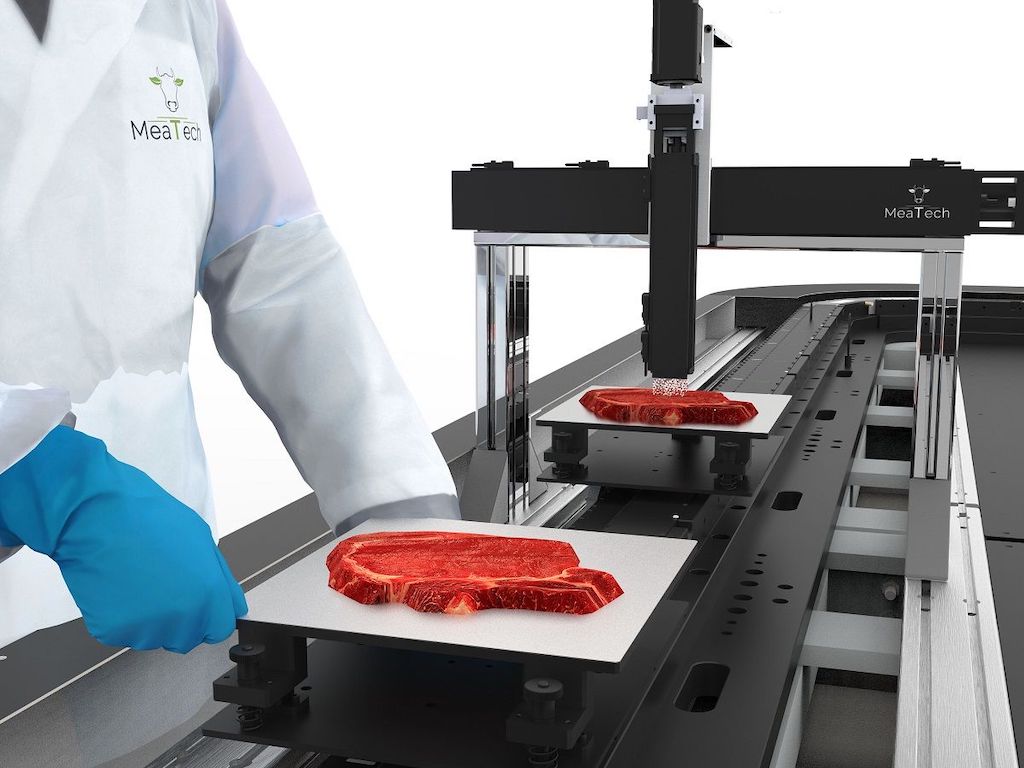3 Mins Read
Following Israeli cultivated meat food tech Meat-Tech 3D’s earlier announcement that it has signed a letter of intent to purchase a cultured fat company, the startup has now revealed that the company in question is Peace of Meat. It has made an initial €1 million (US$1.19 million) investment into Peace of Meat in the lead up to the acquisition of the remainder of the company, which is still subject to the completion of a final agreement. Meat-Tech says that its investment will help it scale-up its cell-based technology and speed up commercialisation.
Announced on Wednesday (October 20), Ness Ziona-based Meat-Tech has invested an initial sum of US$1.19 million in Peace of Meat, a Belgian B2B startup producing cultivated fat and texturing ingredients. Meat-Tech’s investment is part of its planned full acquisition of the company, as announced earlier last month.
Upon the completion of the final agreement, which is still in discussion, Meat-Tech will purchase all of Peace of Meat’s equity once the startup has achieved pre-agreed technological milestones over two years. Meat-Tech will acquire all the target company’s shares for around US$17.5 million, in a combination of cash and Meat-Tech’s equity.
Expediting the development of a broader range of cultured fat options will accelerate our go-to-market plans and support our current activities while opening the door to new product opportunities.
Sharon Fima, CEO & CTO of Meat-Tech
Antwerp-based Peace of Meat, which was recently selected as one of Big Idea Ventures’ (BIV) cohorts this year, has developed a proprietary stem-cell-based technology to produce cruelty-free animal fats, such as those from cattle, chicken or geese. It was founded by Dirk von Heinrichshorst, David Brandes and Eva Sommer in 2019.
Meat-Tech plans to leverage Peace of Meat’s cultured fat technologies to expand its cell-based offerings and speed up its timeline to bring cell-based products to market.
“Expediting the development of a broader range of cultured fat options will accelerate our go-to-market plans and support our current activities while opening the door to new product opportunities,” said Sharon Fima, CEO and CTO of Meat-Tech.
The Israeli food tech also said it expects that with Peace of Meat’s technology, it will be launching “hybrid” products incorporating both plant and cell-based ingredients.
Hybrid products, such as plant-based burgers made with cultured fat, may prove to be an exciting new product category. Such fats may offer improved aromas, flavours and textures as compared to purely plant-based proteins.
Steve H. Lavin, Chairman of the Board of Directors at Meat-Tech
“Meat-Tech believes that hybrid products, such as plant-based burgers made with cultured fat, may prove to be an exciting new product category. Such fats may offer improved aromas, flavours and textures as compared to purely plant-based proteins,” said Steve H. Lavin, chairman of the board of directors of Meat-Tech.
“Completing this acquisition will add technological capabilities to support Meat-Tech’s core centre-of-plate product offering.”
“Peace of Meat shares the strategic vision of Meat-Tech 3D and is excited to join forces. We are convinced that the strong scientific and commercial synergies between both parties paired with our approach of creating hybrid products based on savoury cultured fats is the perfect setting to bring cultured meat to market in an increasingly competitive space,” added David Brandes, managing director of Peace of Meat.
Lead image courtesy of Meat-Tech.




